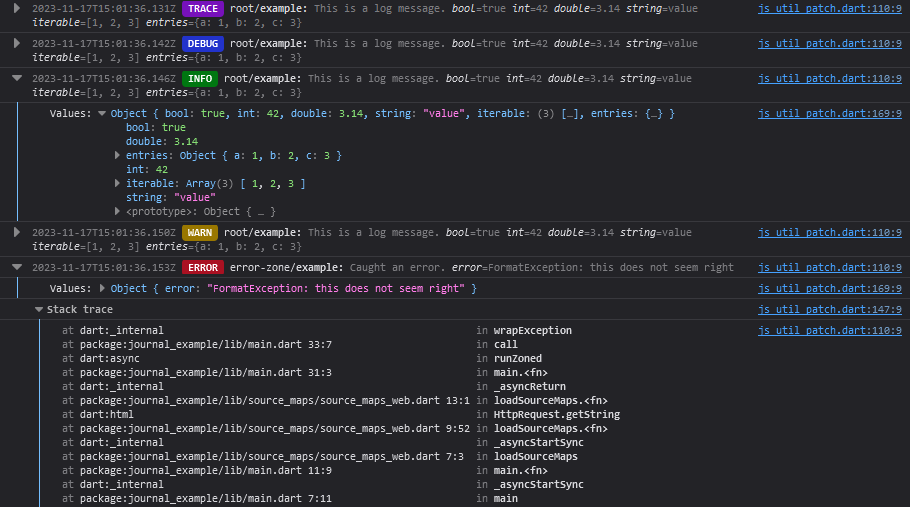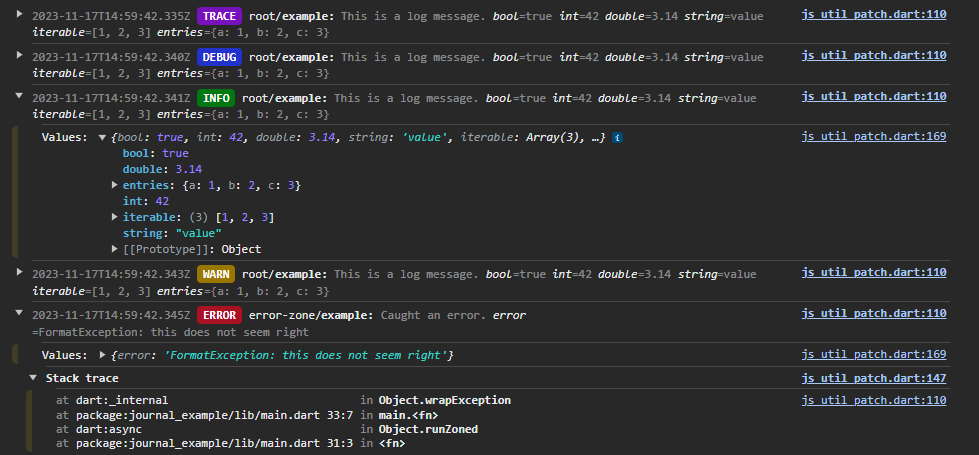A simple log writer and subscriber usable both from libraries and applications.
To create a journal, simply instantiate Journal with a unique name, normally the name of the
package that emits the entries.
import 'package:journal/journal.dart';
const journal = Journal('http_server');Following that, you can simply log entries.
journal.info('Started HTTP server.', values: {'port': port.toJournal});
if (address.isUnbound) {
journal.warn('Be careful when not binding the server to a concrete address.');
}The default output uses a pretty-printed format on all supported platforms.
Note that you might need to set Journal.forceFormatTerminalOutput to get properly formatted
output in your terminal.

Default output in Windows Terminal

Default output in Mozilla Firefox

Default output in Google Chrome
To configure journal, you can either implement your own JournalOutput or override the parameters
of the default one.
Journal.outputs = const [
DefaultJournalOutput(
displayTimestamp: true,
displayLevel: true,
displayZone: false,
displayName: true,
displayTrace: true,
),
];For compatibility with the logging package, simply direct its records to journal.
import 'package:logging/logging.dart'
Logger.root.onRecord.listen((record) {
Journal.record(
record.loggerName,
JournalEntry.fromLogging(record),
);
});See the changelog for a detailed list of changes throughout the package's history.